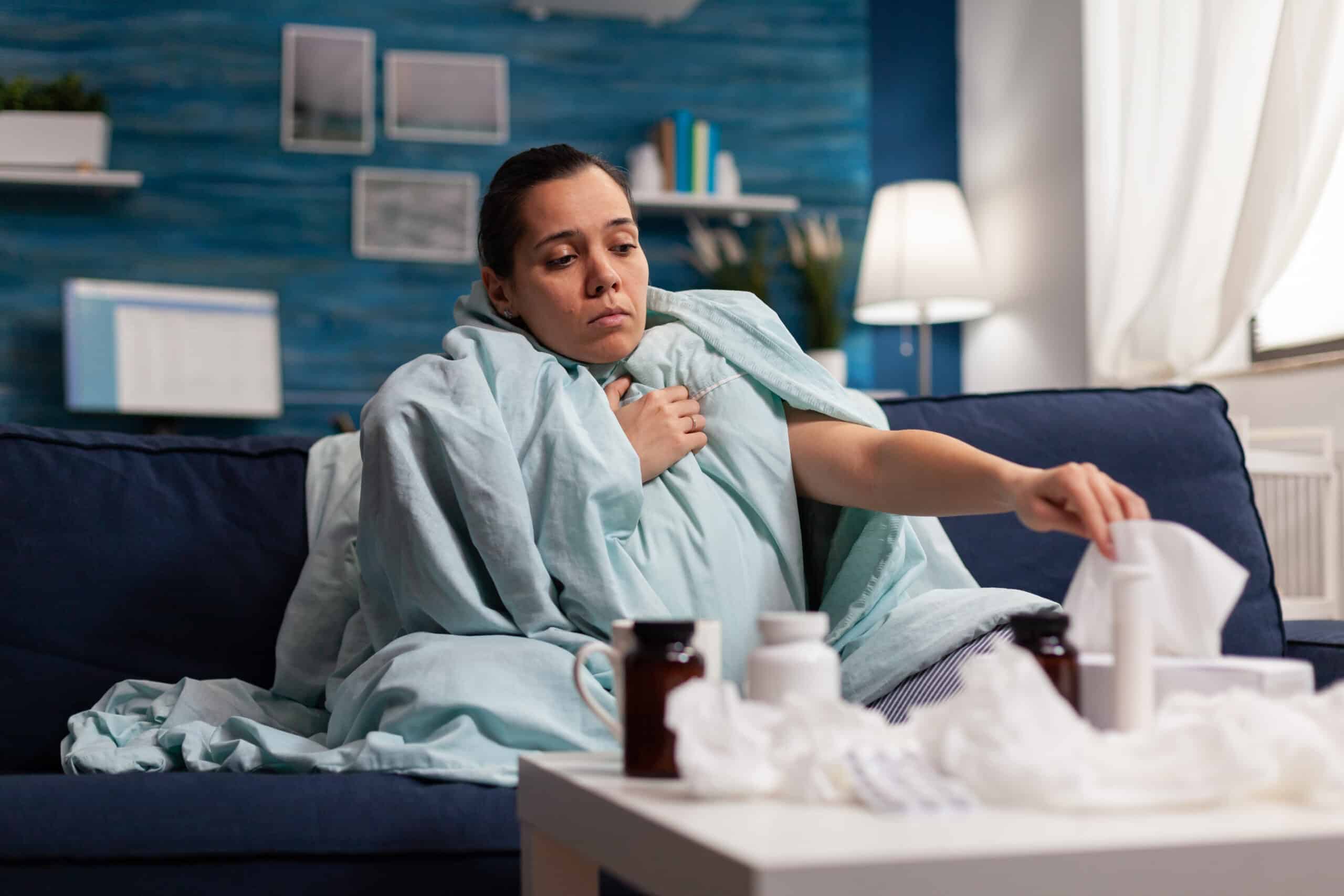Nyquil and Alcohol: What You Need to Know
Nyquil is a widely used over-the-counter medication that relieves cold, flu, and allergy symptoms. It contains ingredients like acetaminophen (a pain reliever and fever reducer), dextromethorphan (a cough suppressant), and doxylamine (an antihistamine that helps you sleep). While effective in treating symptoms, Nyquil’s sedative properties can become dangerous when combined with alcohol. Unfortunately, many people may not be aware of the severe risks involved in mixing the two substances. A study found that over 42% of adults in the U.S. have mixed alcohol with prescription or over-the-counter medications at least once, increasing their risk of harmful interactions. Combining Nyquil and alcohol can lead to health complications ranging from severe drowsiness to life-threatening conditions such as liver damage or respiratory failure.
For individuals struggling with alcohol misuse, it’s essential to seek help through alcohol rehab programs that can address these risks and provide support for overcoming addiction.

What is Nyquil?
Nyquil is an over-the-counter medication commonly used to alleviate various cold and flu symptoms, such as congestion, cough, sore throat, fever, and sneezing. It contains a combination of active ingredients that work together to provide relief:
- Acetaminophen: A widely used pain reliever and fever reducer.
- Dextromethorphan: A cough suppressant that helps reduce the urge to cough.
- Doxylamine is an antihistamine that relieves sneezing and runny nose while promoting sleep.
Due to these ingredients, Nyquil is effective for treating cold and flu symptoms but also has sedative properties. This means it can cause drowsiness and dizziness, which is why it’s often recommended for nighttime use. However, when combined with alcohol, these sedative effects can intensify, posing significant health risks.
Mixing medications like Nyquil with alcohol can increase the likelihood of overdose or other dangerous side effects, mainly when the drug contains acetaminophen, which can lead to liver damage if combined with alcohol. Acetaminophen overdose is one of the leading causes of acute liver failure in the U.S., and the risk is heightened when alcohol is involved. Therefore, it’s crucial to avoid using Nyquil if you’ve consumed alcohol to prevent these potentially serious complications.
Why Is Mixing Nyquil and Alcohol Dangerous?
Both Nyquil and alcohol have sedative effects on the body. These effects are amplified when taken together, increasing the risk of severe side effects. Here are some reasons why mixing Nyquil and alcohol is dangerous:
- Increased Sedation and Drowsiness: Nyquil’s antihistamine (doxylamine) and cough suppressant (dextromethorphan) can cause drowsiness. Alcohol also has sedative properties. Together, these can significantly impair your ability to stay alert, leading to dangerous situations, such as impaired driving or accidents at home. In fact, the National Highway Traffic Safety Administration (NHTSA) reports that drowsy driving leads to approximately 91,000 crashes each year in the U.S., many of which involve medications or alcohol.
- Liver Damage: Nyquil contains acetaminophen, a pain reliever that can cause liver damage when taken in large doses or combined with alcohol. Drinking alcohol while taking Nyquil increases the risk of acetaminophen overdose, which can lead to severe liver damage or even liver failure.
- Respiratory Depression: Both alcohol and Nyquil can suppress your central nervous system, which can slow your breathing. In extreme cases, this could lead to respiratory failure—a condition where your body doesn’t get enough oxygen.
- Intensified Side Effects: Taking Nyquil with alcohol can amplify side effects such as nausea, dizziness, headaches, and increased heart rate. This combination may also worsen pre-existing conditions like depression or anxiety.
- Alcohol Addiction and Abuse: For individuals struggling with alcohol addiction or alcoholism, the combination of alcohol and Nyquil can be especially harmful. Nyquil can enhance the intoxicating effects of alcohol, leading to a higher risk of dependency or abuse.
The Risks for Individuals with Alcoholism
Individuals struggling with different types of alcoholism face heightened risks when mixing alcohol with over-the-counter medications like Nyquil. Some individuals with alcohol use disorder may take Nyquil to enhance the effects of alcohol or to ease alcohol withdrawals. However, this practice can lead to dangerous consequences, especially for those in recovery or detox.
For individuals experiencing alcohol withdrawals, mixing alcohol with Nyquil to alleviate symptoms can worsen withdrawal complications. Withdrawal from alcohol can cause symptoms such as anxiety, sweating, insomnia, and even seizures. Adding Nyquil into the mix may cause additional strain on the central nervous system, making recovery even more complex and risky.
Can Nyquil be Taken After Drinking Alcohol?
If you’ve had alcohol, it’s generally recommended to avoid taking Nyquil. Ideally, you should wait until the alcohol has cleared from your system before taking the medication. Alcohol can stay in your bloodstream for several hours, so it’s crucial to avoid mixing the two to reduce the risk of complications.
The general recommendation is to wait at least 24 hours after consuming alcohol before taking Nyquil. However, if you regularly consume alcohol or take medications, it’s best to consult with a healthcare professional before taking Nyquil to ensure your safety.
Understanding the Severity of Interactions
It’s essential to understand that combining alcohol with other medications, not just Nyquil, can pose severe health risks. Many people wonder about interactions between meloxicam and alcohol, another dangerous combination that can lead to stomach bleeding or ulcers. As with Nyquil, the sedative and anti-inflammatory properties of meloxicam can amplify alcohol’s harmful effects.
If you’re taking any medications—whether prescription or over-the-counter—it’s vital to understand how alcohol can interfere with their effectiveness or cause adverse effects. Always consult with a healthcare provider when unsure about drug and alcohol interactions.

Seeking Help for Alcohol Addiction
If you or someone you know struggles with alcohol addiction, combining Nyquil with alcohol is only one of many potential dangers. Alcohol addiction can lead to numerous health complications and negatively affect every aspect of life.
At Villa Oasis, we provide comprehensive treatment for alcohol addiction, offering detox, residential programs, and outpatient services tailored to each individual’s needs. Our facility specializes in helping individuals overcome the physical and emotional challenges of addiction, providing a safe and supportive environment for recovery.
We understand that there are different types of alcoholism, and each person’s journey to recovery is unique. That’s why we offer personalized treatment plans that address the specific challenges of alcohol use disorder. Whether you’re experiencing mild, moderate, or severe alcohol addiction, our team is here to support you every step of the way.
Addiction Treatment at Villa Oasis
Mixing Nyquil and alcohol is dangerous, with potential risks ranging from increased drowsiness to liver damage and respiratory depression. It’s essential to avoid this combination, especially if you’re struggling with alcohol addiction or alcoholism.
If you’re unsure about using Nyquil or other medications after consuming alcohol, it’s always best to consult with a healthcare provider. For those battling alcohol addiction, Villa Oasis offers a variety of treatment options to help individuals regain control of their lives and achieve lasting recovery.
Whether you’re dealing with alcohol withdrawals or simply looking for safe alternatives for cold and flu relief, we’re here to help. Reach out to us today to learn more about our programs and how we can support your journey to sobriety.

